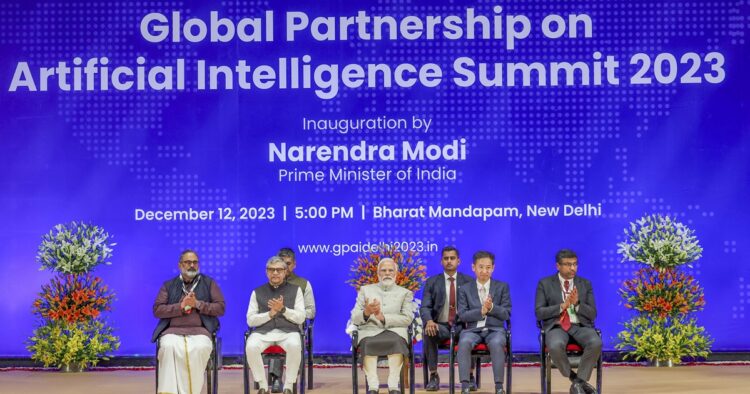The Global Partnership on Artificial Intelligence (GPAI) recently made strides with the unanimous adoption of the New Delhi declaration by its 29-member countries. The declaration emphasizes collaboration, inclusion, and the establishment of a governance framework for AI. The adoption took place after a lengthy ministerial council meeting, reflecting the commitment of partner nations to work together on innovative and collaborative AI applications in various sectors such as healthcare and agriculture.
Rajeev Chandrashekhar, the Minister of State for Electronics and IT, announced the adoption and highlighted GPAI’s pivotal role in shaping the future of AI. The declaration aims to position GPAI as a central force for fostering advancements and collaborative AI initiatives among member nations. The details of the declaration, however, were not publicly disclosed.
Chandrashekhar also emphasized GPAI’s commitment to inclusivity, with a focus on involving countries from the global south to ensure the benefits of AI are accessible to everyone. The minister announced Senegal’s elevation to the steering committee during the summit, indicating Bharat’s intention to expand GPAI’s reach during its presidency.
During the summit, Japan’s approval of the GPAI expert center in Tokyo was announced, marking a significant development for the Asian region. French Minister Jean Noel Barrot highlighted the importance of the New Delhi declaration and discussed plans for collaboration with the OECD to enhance the governance and deployment of AI solutions.
The UK’s Minister for AI and Intellectual Property, Viscount Jonathan Camrose, underscored GPAI’s contribution to the AI regulatory ecosystem, praising its inclusive and adaptive approach. The collaborative efforts of GPAI member countries aim to pool expertise and resources for effective AI governance.
In a separate development, Rajeev Chandrashekhar shared plans for Bharat to create AI computing capacity for start-ups and researchers. The government aims to establish a robust framework, including computing capacity and diverse datasets, to support AI research. Chandrashekhar emphasized the importance of restricting access to Bharat data to trusted and safe models, citing concerns about potential misuse of data.
As part of a panel discussion, Chandrashekhar highlighted the need for global collaboration in establishing basic principles and ground rules for AI. He stressed the urgency of this process and expressed hope for an agreement among like-minded countries within the next six to nine months.

















Comments